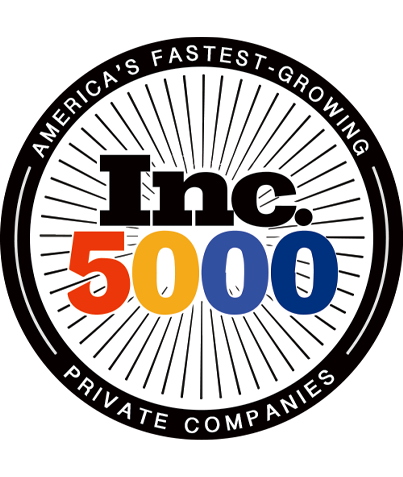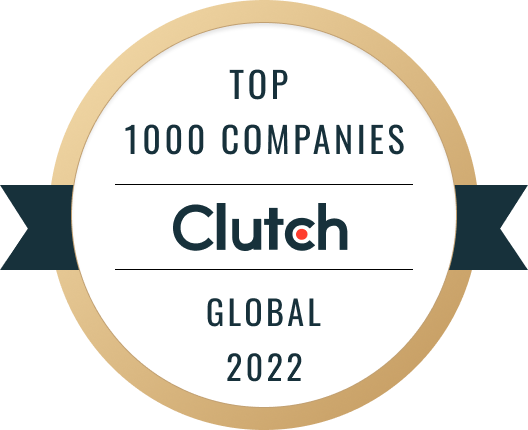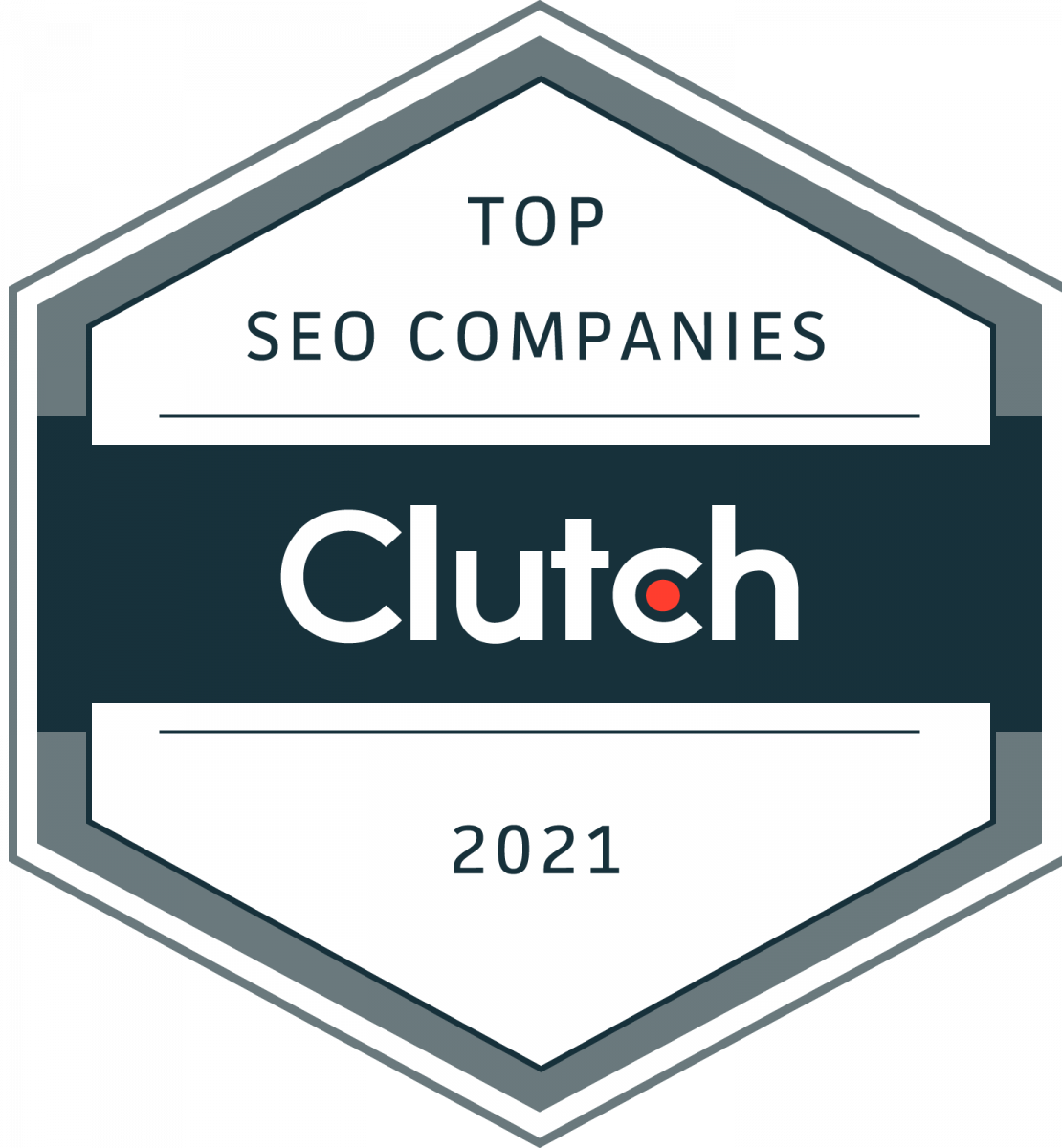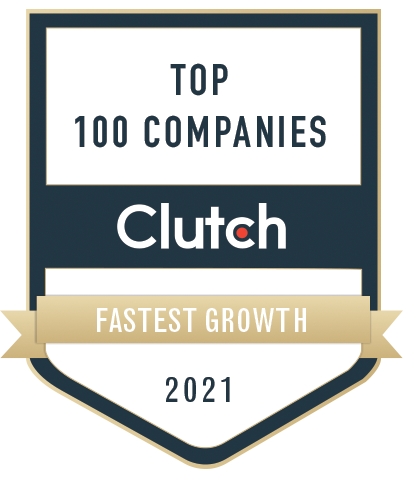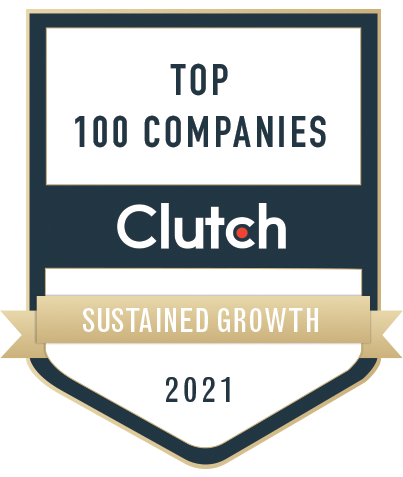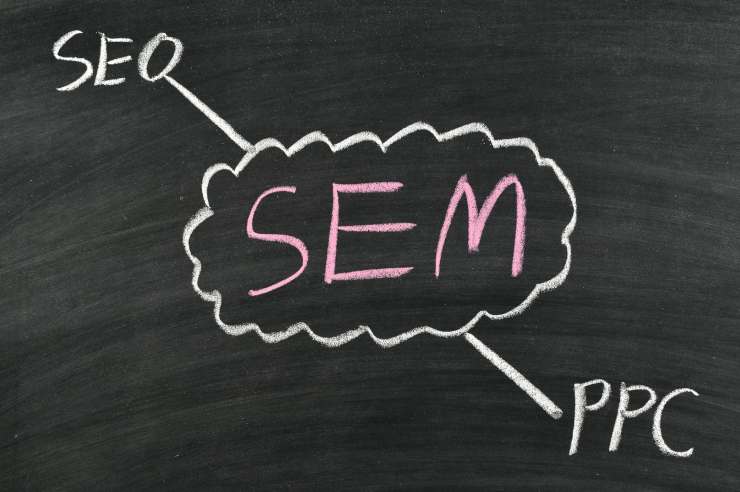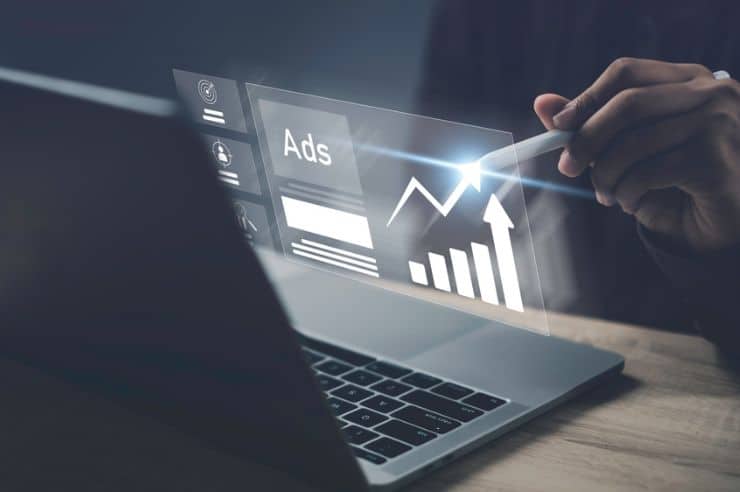Comparing SEO vs. PPC is one of the most important comparisons to make when it comes to marketing your company online. Both strategies can be highly effective. So how do you pick which one is right for your website?
If you’re struggling to determine which is better for your business, we’ll cover the basics and benefits between the two to help you make the best decision.
SEO vs. PPC: What’s the Difference?
As you think about PPC vs. SEO, there are a couple of main differences to keep in mind: PPC costs much more money than SEO but can provide quicker results. While SEO takes more time, it can help build and create a lasting online presence to help capture, engage, and convert.
You’ll need to work hard to create content that appears at the top of Google search results to nail SEO marketing. PPC ads go to the top of these results pages automatically without any further effort on your end. But you have to pay the price per click for the privilege, as it can be pretty competitive out there. If you plan on investing in PPC, be mindful that you’ll need a budget that allows you to remain competitive. If you execute a PPC campaign but refuse to spend the recommended budget, you’ll likely see minimal results – if any.
What is SEO?
SEO stands for Search Engine Optimization. It’s a type of digital marketing that involves building content around key terms to rank highly in Google search results when people look up those terms.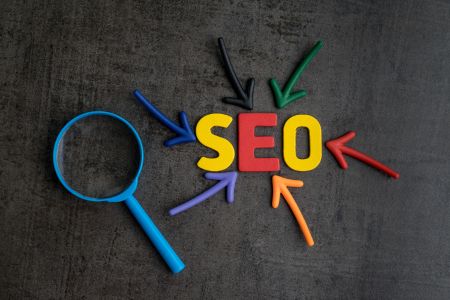
For example, let’s say you want to be at the top of the Google results page whenever someone types in “best accounting software.” To achieve this, you’ll need to create a sound SEO strategy which could include an in-depth, valuable blog post that describes the best accounting software and makes generous use of the term.
If all goes well, you’ll end up on the top of the Google search results page whenever someone types in “best accounting software” into their Google search bar.
SEO Pros
- No advertising fees outside of what you pay to make the content
- Boost traffic to your website
- Can last forever
- Improved click-through rate
- Build up consumer credibility and trust in your brand
SEO Cons
- It will take time to see the results
- SEO strategies can be complicated and more expensive than you think
- You have no guarantee of earning a high ranking
What is PPC?
Pay-per-click, or PPC, is the second half of our SEO vs. PPC comparison. It’s a type of digital marketing that involves paying a fee every time your advertisement gets clicked. There are several different types of PPC advertising, one of which is search engine PPC. 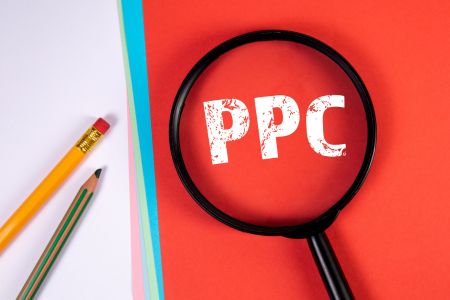
Whenever someone types a phrase into Google, they’re shown a few advertised results in addition to their organic ones. These are PPC ads that companies pay money to appear whenever certain types of internet users type in certain keywords.
For example, if you own a hardware store, you could pay to have it pop up whenever people in your area type “hardware store” into Google. Then, when someone clicks on your result, you would pay a fee for that traffic.
PPC Pros
- Show up near the top of the page – or even bottom of page 1
- More control over what shows up within the result itself (such as pricing information, product details, and contact data)
- Options for visual product ads
- Makes it easy to A/B test landing pages, ad phrasing, and more
- Results are instant
PPC Cons
- You have to pay every time someone clicks on your ad
- If you ever stop paying for the PPC ad placement, you will lose the traffic that you’ve been generating from it entirely
- Your average cost-per-click depends on your industry and could be higher than you think
Should you pursue PPC Ads, you’ll want to allow for approximately 30-45 days to see results. After that time, you can adjust, but pausing or canceling ads will cost you to lose placement and traffic. Be mindful of what you choose to pursue and not pursue.
Which Is the Better Solution for Your Business?
While we’ve covered the basics, pros, and cons of SEO and PPC marketing, the question remains, which one should you use?
There are a few ways to come up with an answer to that question.
For example, we could look at SEO vs. PPC statistics, which say that organic search drives 53% of web traffic while paid ads only account for 27%. Or we could look at PPC vs. SEO conversion rates. But these vary quite a bit from industry to industry.
The bottom line is that if you can only use one, the right strategy for your company will depend on its unique factors.
PPC may be better if:
- You want instant results
- You don’t mind paying for each click that you get
- You don’t want to have to spend time and money creating content that will show up at the top of Google search results organically
But SEO will likely be the better choice if:
- You’re looking for a long-term digital marketing solution
- You don’t want to have to pay every time someone clicks on your result
- You want to optimize your click-through rates
SEO and PPC: Working Together
You could look at a million SEO vs. PPC infographics and spend hours researching SEO vs. SEM vs. PPC. But at the end of the day, most marketers would agree that these two tactics are best-used together. That’s true for a few reasons.

First, when you combine SEO and PPC, you’re giving your company instant digital marketing results (through PPC) while building a longer-term website traffic solution (SEO). That means you can start getting results immediately without totally sacrificing your future.
Additionally, your results from PPC marketing will generate a ton of data about how well your company does with different types of keywords, ad copy, and landing pages. You can leverage all of this information to make much more effective SEO marketing content, which could eventually help you achieve the same results in the future.
Finally, your audience isn’t a monolith. It’s full of unique individuals who each have their own preferences. That means it’s usually a mistake to deploy a single type of advertising. Because by doing so, you’re potentially missing out on large chunks of your audience that may respond better to other types of ads.
When you put it all together, the answer is clear. If you want to get as much out of your digital marketing strategy as possible, using SEO and PPC together is the best way to do so.
SEO vs. PPC: Frequently Asked Questions
Here are some frequently asked questions – and answers – to help determine which marketing strategy – SEO or PPC – would be the most effective for your business:
What are your marketing goals and objectives?
Your marketing goals and objectives will play a significant role in determining whether SEO or PPC is the better strategy for your business.
SEO (Search Engine Optimization) is a long-term strategy focusing on improving your website’s visibility and organic rankings in search engine results. It aims to drive consistent, sustainable traffic to your site over time. SEO is ideal if your goal is to establish brand authority, improve brand awareness, and generate long-term organic traffic.
On the other hand, PPC (Pay-Per-Click) advertising involves running paid ads on search engines or other platforms. It provides immediate visibility and allows you to target specific keywords and demographics. PPC is effective for short-term campaigns, product launches, promotions, or if your primary objective is to drive immediate traffic, leads, or sales.
How competitive is your industry?
The competitiveness of your industry is a crucial factor in deciding between SEO and PPC.
SEO can be more challenging in highly competitive industries where numerous businesses are vying for the same keywords and rankings. It requires consistent effort, time, and expertise to outrank competitors and achieve desirable organic positions.
PPC can be a viable option in competitive industries where it may take more work to achieve top organic rankings. By bidding on relevant keywords, you can secure prominent ad placements and gain visibility, even if your website’s organic rankings could be stronger.
How does your website perform in organic search results?
Assessing your website’s performance in organic search results is essential when considering SEO versus PPC.
If your website already ranks well for relevant keywords and generates significant organic traffic, investing in SEO can help maintain and improve your visibility. SEO efforts can further optimize your website’s content, structure, and technical aspects to attract more organic visitors.
If your website is relatively new, lacks organic visibility, or needs improvement in terms of search engine rankings, PPC can provide immediate visibility while you work on your SEO strategy.
What is your budget for digital marketing?
Your budget for digital marketing will influence whether SEO or PPC is more suitable for your business.
SEO is a long-term investment that requires ongoing effort, and it may take some time to see significant results. However, once your organic rankings improve, the traffic generated is essentially free, aside from the ongoing SEO maintenance costs.
PPC involves paying for each click on your ads. The cost per click (CPC) varies depending on factors like industry competitiveness and keyword demand. PPC campaigns can be scaled up or down based on your budget, allowing for more control over costs and immediate visibility.
Are you targeting a local or global audience?
Determining whether your target audience is local or global plays a role in deciding between SEO and PPC.
SEO can be advantageous for targeting a local audience. Local SEO strategies, such as optimizing your website for location-specific keywords and creating local business listings, can help you appear in local search results and attract customers from your immediate area.
PPC allows for precise targeting options, making it suitable for both local and global campaigns. With PPC, you can target specific locations, languages, and demographics, ensuring your ads reach the desired audience.
How quickly do you need results?
Consider the urgency of your marketing goals when deciding between SEO and PPC.
SEO is a long-term strategy that requires time to build authority, optimize your website, and improve organic rankings. SEO may not be the best choice if you need immediate results, as it typically takes several months to see significant improvements.
PPC, on the other hand, provides instant visibility. Once you set up your PPC campaigns and ads, you can start immediately driving targeted traffic to your website. This makes PPC suitable if you require immediate traffic, leads, or sales.
What is your target audience’s online behavior?
Understanding your target audience’s online behavior is crucial for determining the effectiveness of SEO versus PPC.
SEO is effective when your target audience relies heavily on search engines to find information, products, or services. If they frequently use search engines to conduct research or make purchasing decisions, optimizing your website for relevant keywords can ensure you appear in their search results and drive organic traffic.
PPC can be beneficial if your target audience is more likely to engage with ads or click on sponsored listings. If they often click on ads to explore products or services, PPC can provide immediate visibility and drive traffic to your website.
Consider factors such as their platforms, preferences for organic search results versus paid ads, and behavior when making online purchasing decisions. This information will help determine whether SEO or PPC aligns better with your audience’s online behavior.
How does your website perform in terms of user experience and conversion rate optimization?
Assessing your website’s user experience (UX) and conversion rate optimization (CRO) is crucial when considering SEO versus PPC.
For SEO, user experience is essential because search engines prioritize websites that provide a positive experience to visitors. Factors like website speed, mobile-friendliness, ease of navigation, and quality content contribute to a better UX, which can positively impact your organic rankings.
CRO focuses on optimizing your website to encourage visitors to take desired actions, such as purchasing, filling out a form, or subscribing to a newsletter. If your website already has effective CRO elements in place, driving organic traffic through SEO can result in higher conversion rates.
PPC can complement CRO efforts by directing targeted traffic to optimized landing pages specifically designed to convert visitors. Creating tailored landing pages and running A/B tests can optimize your conversion rates directly through your PPC campaigns.
What level of control do you want over your marketing campaigns?
Consider the level of control you desire over your marketing campaigns when choosing between SEO and PPC.
SEO requires ongoing effort and optimization but offers less direct control over how and when your website appears in search results. Search engines determine rankings based on various factors, including algorithms and competitor activity. While you can influence your organic rankings through SEO strategies, the control is more indirect.
PPC provides a higher level of control over your marketing campaigns. You can set specific budgets, choose target keywords, create ad copy, and control when and where your ads are displayed. This level of control allows for more precise targeting and immediate visibility.
Are you prepared to invest in ongoing optimization and maintenance?
Both SEO and PPC require ongoing optimization and maintenance, but the extent of the investment may vary.
SEO requires continuous effort to maintain and improve your organic rankings. This includes regularly updating content, monitoring keyword performance, optimizing website structure and technical elements, and adapting to algorithm changes. Ongoing investment in SEO ensures long-term visibility and organic traffic growth.
PPC campaigns also require ongoing optimization to maximize their effectiveness. This involves monitoring ad performance, adjusting bids and targeting, testing different ad variations, and refining your campaigns based on data analysis. Ongoing investment in PPC ensures that your ads remain relevant and cost-effective.
Consider your resources, whether it’s an in-house team or outsourced expertise, and your willingness to invest time and effort into continuous optimization and maintenance when choosing between SEO and PPC.
When deciding whether to use SEO vs PPC, it’s crucial to align your marketing goals, budget, target audience, industry competitiveness, desired timeframe, and level of control with the strengths and limitations of each strategy. A comprehensive evaluation of these factors will help determine the most suitable approach for your business.
Our Awards

